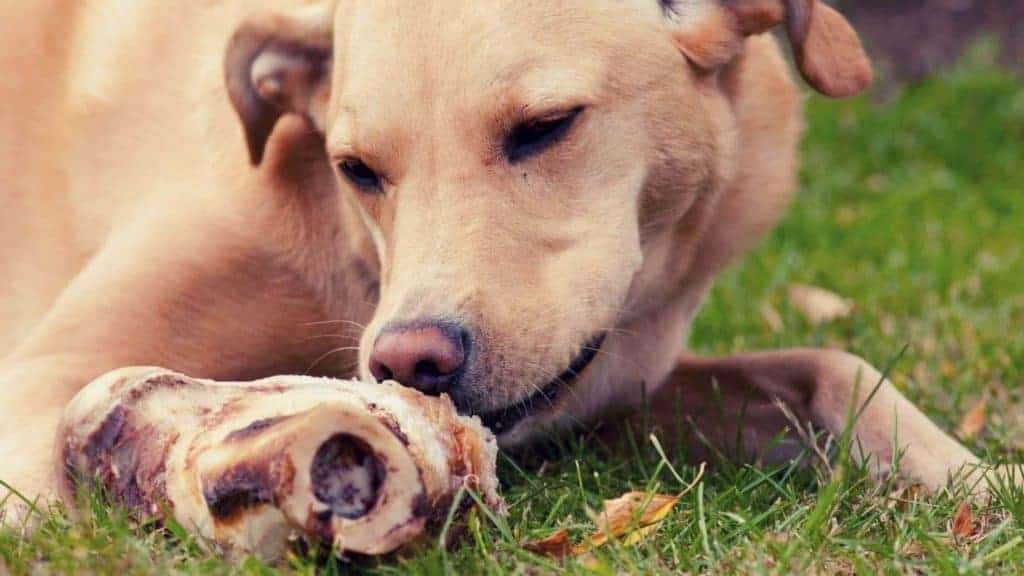Seeing your dog eyeing a leftover holiday ham bone can pull on your heartstrings. You want to share a tasty treat with your furry friend. However, veterinarians strongly advise against giving ham bones to dogs. Here’s why ham bones can be dangerous and better alternatives for safe, healthy dog treats.
The Risks of Giving Dogs Ham Bones
While your pup may find a ham bone irresistible, these meaty bones can easily cause major health issues for dogs. According to vets, some key risks include:
-
Blockages – Dogs are notorious for wolfing down food. They may break off and swallow large chunks of ham bone that can get lodged in their esophagus or intestines. These blockages are extremely dangerous and require emergency surgery.
-
Splinters – Cooked bones tend to be more brittle. They can splinter into shards that damage a dog’s mouth, throat, or stomach.
-
Choking Hazards – Like children, dogs are at risk for choking on foods Bones increase this danger of inhaling a piece into their windpipe
-
Cuts and Scrapes – Sharp bone edges can lacerate a dog’s mouth tongue gums, and internal organs.
-
Fractured Teeth – Hard bones may lead to cracked or broken teeth in dogs. This causes immense pain and dental issues.
-
Perforations – Bones can potentially puncture holes in a dog’s esophagus, stomach, or intestines. This allows digestive juices to leak into the abdominal cavity.
-
Pancreatitis – Fatty foods like ham bones can trigger this painful, potentially fatal inflammation of the pancreas.
With so many risks, it’s clear why vets universally recommend keeping ham bones away from dogs.
Signs of Trouble After Eating Bones
If your dog managed to scarf down a ham bone before you intervened, watch for these signs of distress:
- Coughing, gagging, drooling
- Whining or crying in pain
- Attempting to vomit but being unable to
- Hunched posture, unwilling to move
- Loss of appetite
- Swollen abdomen
- Blood in vomit or stool
Contact your vet immediately if you observe any of these symptoms after your dog ate a bone. Time is critical for removing obstructions before lasting damage occurs.
Safer Treat Alternatives for Dogs
The good news is there are many tasty options that make safe alternatives to dangerous ham bones:
- Lean cooked meat scraps like chicken, turkey, or beef
- Slices of carrot or apple
- Low-fat cheese cubes
- Unsalted peanut butter
- Tough dental chews designed for dog chewing
- Store-bought dog biscuits or jerky treats
Stick to softer treats that can be easily chewed and digested. Avoid anything potentially sharp or chunky. And always supervise your dog when giving treats to prevent choking.
Right-Size Treats for Your Dog
When handing out treats, tailor the portion size to your dog’s size to avoid overfeeding:
- Small dogs – Treats no larger than a dime
- Medium dogs – Treats no bigger than a quarter
- Large dogs – Treats should be smaller than the palm of your hand
Better to give multiple smaller treats than one large, risky chew item like a ham bone.
Talk to Your Vet About Special Dietary Needs
Some dogs have extra sensitive stomachs or require prescription therapeutic diets. Discuss your dog’s unique nutritional requirements with your veterinarian to determine appropriate treat options.
The Bottom Line on Ham Bones for Dogs
While you undoubtedly want to spoil your canine companion, avoiding ham bones and other cooked bones is essential for their safety. These rigid, brittle bones pose a clear and present danger for causing major blockages, lacerations, and other traumatic injuries in a dog’s mouth and digestive tract. No amount of pleasure from gnawing on these bones is worth risking your dog’s life and health.
As a caring pet owner, forego ham bones. Focus on giving your tail-wagger healthier, vet-recommended alternatives like chews, training treats, fruits, and lean meats. With safer options, you can feel confident knowing you’re prioritizing your pet’s wellbeing. That’s the best gift you can give your furry friend.
Frequency of Entities:
ham bone: 21
bone: 18
dog: 16
treat: 10
eat: 5
chew: 4
digestive: 4
blockage: 4
risk: 3
esophagus: 3
intestine: 3
stomach: 3
cooked: 2
dangerous: 2
bite: 2
swallow: 2
choke: 2
sharp: 2
chunky: 2
oversized: 2
damage: 2
mouth: 2
throat: 2

Ham Bones… Good for Dogs or not?
FAQ
What happens if a dog eats a ham bone?
Can I give my dog a cooked ham hock bone?
Are store-bought ham bones safe for dogs?
Why can’t dogs have ham?
Are ham bones safe for dogs?
Raw bones aren’t softened by the cooking process, but they could have unsafe levels of harmful bacteria. It’s best to keep ham bones away from your dog. No, ham bones are not safe for dogs. Cooked pork bones break off into smaller pieces that could get stuck in your dog’s throat or digestive system.
Is ham good for someone with diabetes?
No. Ham, like other processed meats, is not a healthy food for anyone and should not be consumed often due to its high content of chemical additives.
Can dogs eat cooked ham?
Ham is also not good for pets. In fact, too much ham can lead to inflammation of the pancreas. Dogs should not eat cooked ham bones. Cooked bone is soft and can splinter, but that isn’t the only bad thing about them. Cooked ham also has a lot of sodium in it. And dogs that eat too much sodium could get salt poisoning.
